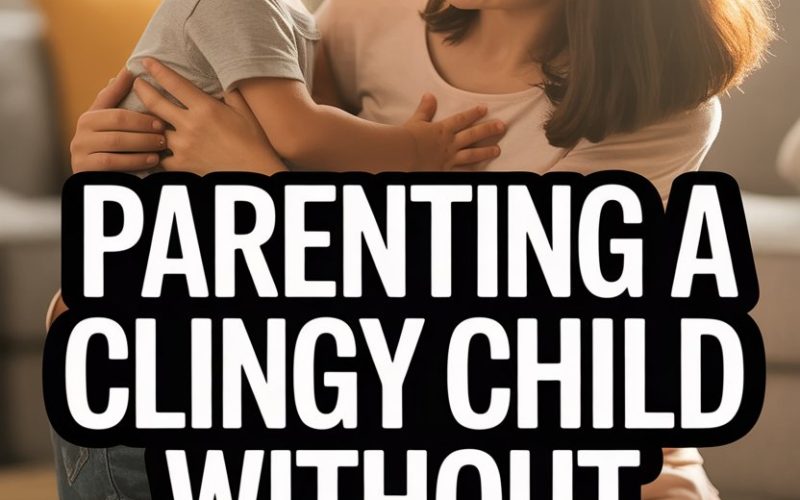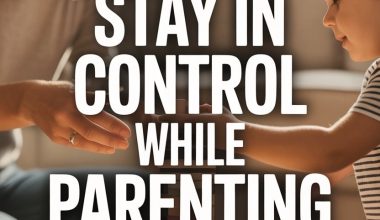Clinginess. It’s one of those parenting hurdles that never makes it into the cutesy Instagram reels.
One moment you’re making a cup of tea, the next you’ve got a toddler attached to your ankle like a barnacle with separation anxiety.
If you’ve ever had to pee with an audience or negotiate bedtime as if you’re drafting a peace treaty, you know the drill.
The good news? Clinginess is normal, even healthy, but that doesn’t mean you have to white-knuckle your way through every whinge and wail.
Here’s how to stay sane, respond with love, and maybe—just maybe—get a minute to yourself.
Why Clinginess Happens (and No, It’s Not a Personal Failing)
Clingy behaviour often pops up when kids are feeling vulnerable. Maybe there’s a new sibling in the house. Perhaps you’ve switched up the bedtime routine.
Sometimes it’s as simple as a growth spurt stretching their sense of security.
Experts such as Dr. Laura Markham from Aha! Parenting explain that young kids’ nervous systems are still under construction.
Independence sounds great, but their brains are busy whispering, “Mum/Dad is my safe place—don’t let them out of your sight!”
You haven’t “spoiled” your child or failed to instil courage. Evolution wired little ones to seek out their grown-ups. If sabre-tooth tigers were still a thing, your child would be the sole survivor.
When Clinginess Crosses Into Overwhelm (Yours, Not Theirs)
Maybe you started with good intentions—gentle hugs, soothing words, extra stories. Then comes day six of being shadowed to the loo, and the patience meter flashes red.
If you’re feeling frustrated, tapped out, or even resentful, congratulations. You’re human.
Busy parents carry a mental load heavier than a weekly grocery run. Having a little limpet trailing you at all hours? Not the recipe for zen.
Keep in mind: you’re allowed to want space. You’re allowed to feel irritated. What matters is what you do with those feelings.
Connection Before Separation: The Two-Minute Miracle
If you need to step away—cook, make a call, just breathe—try a concentrated burst of affection first. Sit down. Look your child in the eye. Offer a cuddle, gentle touch, or a silly face-off.
Attachment research shows children need to feel “filled up” emotionally before they can tolerate distance. This doesn’t mean hours of play.
Sometimes, two undivided minutes can work magic. Think quality over quantity.
Predictability Is Your Secret Weapon
Change unnerves little kids.
Suddenly, mum is working from home? Dad’s shifts swapped? Christmas decorations went up and now every shop smells like cinnamon? Their world feels wobbly, so they cling.
Predictable routines help children feel safe. Announce what’s happening next: “I’m going to fold the washing, and when I’m done, we can play trains together.”
Consistent rituals—like singing the same song before you leave the room—can also smooth transitions.
You don’t need a colour-coded timetable, just a few reliable beats in your day.
Let Them Have Their Feelings (Without Letting Guilt Run the Show)
Tears and protests when you step away are tough to hear, especially if you’re running late or the neighbours can definitely hear you through the wall.
It’s tempting to pacify with snacks, screen time, or frantic explanations.
Instead, acknowledge their distress. “I hear you’re upset. It’s hard when I leave the room. I’ll be back soon.” You’re not promising never to leave, just letting them know their feelings make sense.
Research from child development experts at Zero to Three has shown that naming feelings helps children process them. Plus, staying calm helps you feel (slightly) more in control.
Small Steps Toward Independence
Encouraging independence doesn’t mean tossing them in the deep end. Start small. Set up a play space nearby while you’re doing something else. Offer a special “mum/dad is busy” basket with toys or books just for those moments.
Praise small efforts: “You played with your blocks while I fed the baby! High five.” Confidence grows when kids get a taste of managing on their own, even if it’s just for three minutes while you microwave your lunch.
The Art of the ‘Goodbye Ritual’
If drop-offs spark major drama—or even just walking into the next room provokes panic—a goodbye ritual can help. This might be a silly handshake, a kiss on each hand, or whispering a “magic word” in their ear.
Psychologists have found that rituals provide comfort by making separations predictable and less mysterious. Whatever works for your family, keep it short and consistent.
Linger too long, and your toddler’s Oscar-worthy performance may reach new heights.
Self-Care: Not an Urban Legend
Self-care for parents is often dismissed as spa days and silent retreats (pause to laugh hysterically). In reality, it’s about tiny acts that refill your cup.
Take five minutes to scroll memes, actually drink your coffee while it’s hot, or go for a walk around the block.
Share the load wherever possible. If you can, lean on family, friends, or trade babysitting favours with another parent in the trenches.
If you’re running on empty, you can’t offer the patience clinginess demands.
If feelings of overwhelm stick around or you find yourself constantly on edge, that’s a sign to check in with your GP or a mental health professional. You wouldn’t ignore a broken arm—don’t ignore a burnt-out brain.
When Clinginess Sticks Around Longer Than Expected
Most clinginess fades as kids grow and confidence blooms. For some, it lingers a bit longer.
If your child’s worries seem extreme (like intense panic at every separation) or if it’s interfering with daily life, consider support from a paediatrician or child psychologist. Separation anxiety disorder is real, and help is available.
Trust your instincts. If something feels off, it’s always better to ask than to wonder.
You’re Not Alone (Even If It Feels Like It)
Parenting a clingy child can be lonely, especially when everyone else’s kids seem to wave goodbye with barely a backward glance. Every family has seasons of extra neediness—sometimes your child, sometimes you.
If it helps, picture every other parent in your neighbourhood, quietly carrying a 30-pound preschooler to the loo. Or at least, sending you silent solidarity from their own back garden.
Finding the Silver Lining
Clingy phases are exhausting, but they’re proof your child feels safe with you.
One day, you’ll miss sticky fingers reaching for your hand—or, at least, you’ll miss the idea of it (the actual mess, maybe not so much).
For now, remember: you’re not spoiling your child by offering comfort.
You’re not failing if you need a break. You’re just a parent, loving fiercely and muddling through.
And the next time someone says “enjoy every moment,” feel free to smile sweetly… and then lock yourself in the bathroom for some very well-earned alone time.




